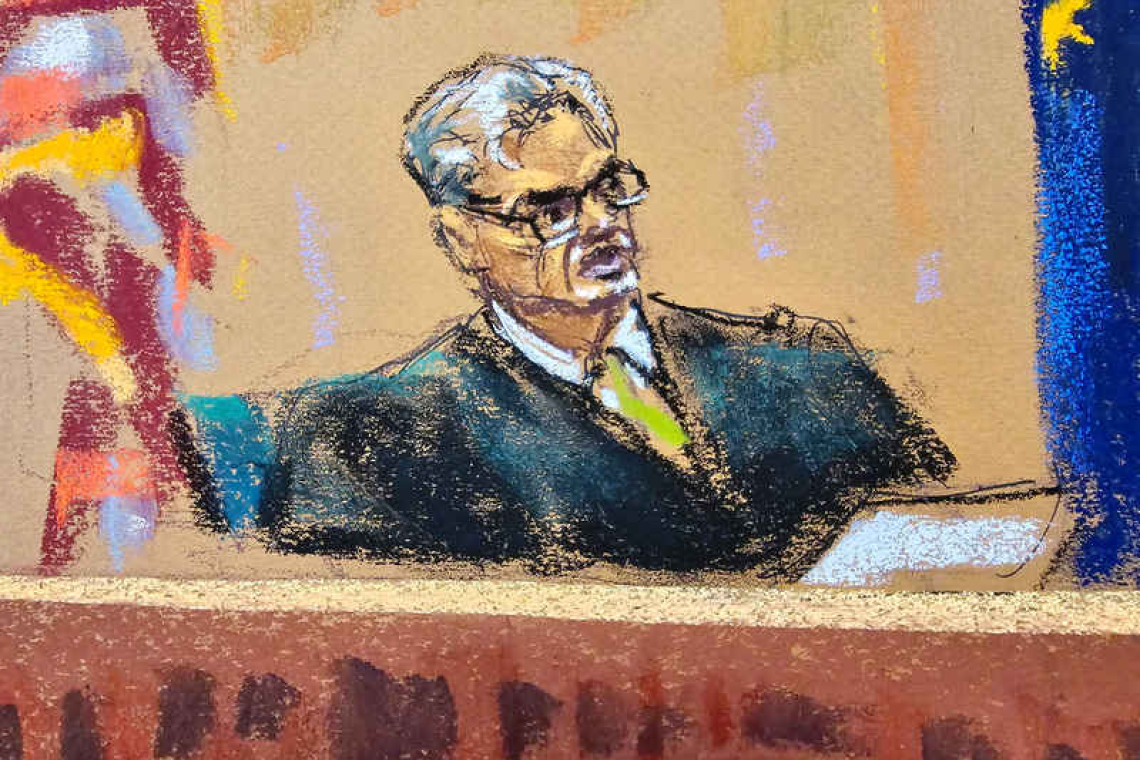NEW YORK--A judge on Monday ruled that Donald Trump's conviction for falsifying records to cover up a sex scandal should stand, rejecting the U.S. president-elect's argument that a Supreme Court ruling nullified the verdict, a court filing showed.
Trump's lawyers argued that he is immune from prosecution for official acts as president under a recent U.S. Supreme Court ruling and that having the case hang over him during his presidency would impede his ability to govern.
He was initially scheduled to be sentenced on Nov. 26, but Justice Juan Merchan pushed that back indefinitely after Trump defeated Democratic Vice President Kamala Harris in the Nov. 5 election. In a 41-page decision, Justice Juan Merchan said Trump's prosecution for "decidedly personal acts of falsifying business records poses no danger of intrusion on the authority and function of the executive branch."
Trump's lawyer did not immediately respond to a request for comment.
Prosecutors with Manhattan District Attorney Alvin Bragg's office, which brought the case, said there were measures short of the "extreme remedy" of overturning the jury's verdict that could assuage Trump's concerns about being distracted by a criminal case while serving as president.
The case stemmed from a $130,000 payment that Trump's former lawyer Michael Cohen made to adult film actor Stormy Daniels. The payment was for her silence before the 2016 election about a sexual encounter she has said she had a decade earlier with Trump, who denies it.
A Manhattan jury in May found Trump guilty of 34 counts of falsifying business records to cover up the payment. It was the first time a U.S. president - former or sitting - had been convicted of or charged with a criminal offense. Trump pleaded not guilty and called the case an attempt by Bragg, a Democrat, to harm his 2024 campaign.
Trump, the first U.S. president to be charged with a crime, had four pending criminal cases as he sought to retake the White House. Federal cases over his efforts to change the result of the 2020 election and his handling of classified documents upon leaving office have been dismissed, per U.S. Department of Justice policy holding that presidents cannot be federally prosecuted.
Another criminal case against Trump over the 2020 election in Georgia state court is in limbo as Trump prepares to take office on Jan. 20, 2025.
The Supreme Court, in a decision arising from one of the two federal cases against Trump, decided that presidents are immune from prosecution involving their official acts, and that juries cannot be presented evidence of official acts in trials over personal conduct. It marked the first time that the court recognized any degree of presidential immunity from prosecution.







